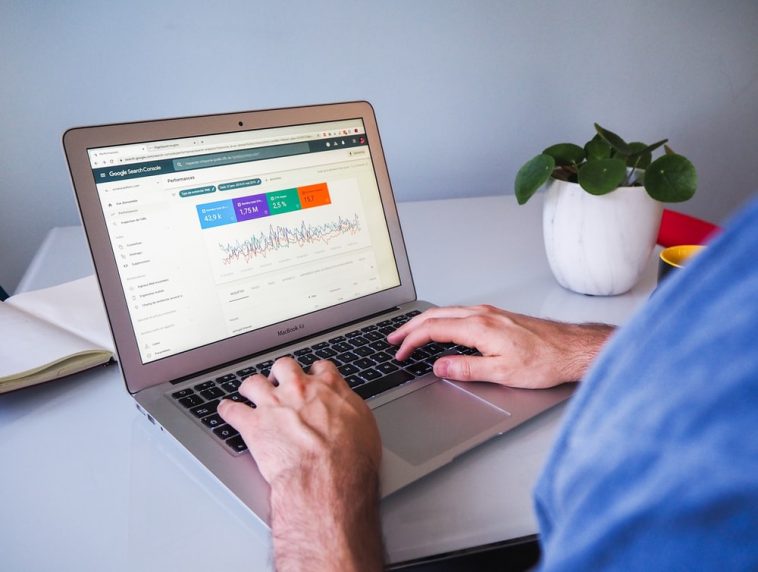Introduction.
I have spent many years working on search engine strategies, and I want to share my thoughts on a topic that comes up again and again: the differences between paid ads and organic search listings on Google.
This topic matters because how you get noticed online can have a big impact on your business. You might be wondering which approach will bring you better results, or if you should try a mix of both.
In this post, I will break down the key points, share some useful statistics, and offer my personal take on how to choose the right method for your goals.
What are Paid Ads on Google?
Paid ads on Google are advertisements that you pay for. These appear at the top or side of the search results page, marked with a small tag to show that they are ads. When someone clicks on one of these ads, you are charged a fee.
This is known as pay-per-click (PPC). I have seen many businesses use paid ads to get quick visibility and to drive traffic right away.
One clear benefit of paid ads is that they can start working as soon as you launch your campaign. For example, a study by WordStream found that the average click-through rate (CTR) for paid search ads is around 3.17% .
This means that even though the CTR may seem low compared to organic results, paid ads can be a useful tool when you need fast, targeted traffic.
What are Organic Search Listings?
Organic search listings are the natural results that show up on Google because they match the user’s query closely.
Unlike paid ads, these listings are earned by having quality content, a well-designed website, and strong search engine optimization (SEO) practices.
I have found that building organic traffic takes time, but the benefits can be long-lasting.
According to BrightEdge, organic search drives about 53% of all website traffic . In my experience, organic results also tend to build more trust with visitors since they are not paid for.
When users see that a site appears naturally in the search results, they are more likely to trust that the content is relevant and valuable.
How Paid Ads and Organic Listings Compare
Let me share a side-by-side look at these two approaches:
Speed of Results: Paid ads start showing results immediately. I have seen businesses run special promotions or drive quick traffic during events by using paid ads. Organic search, on the other hand, requires time to build up. It might take months of quality content creation and link building before you see significant results.
Cost: With paid ads, you need to set aside a budget because you pay each time someone clicks on your ad. Organic search is free in terms of direct costs, but it often requires an investment in time, effort, and sometimes tools to optimize your website.
Trust and Credibility: Many users trust organic listings more than ads because they are earned. Studies have shown that organic results receive up to 92% of all clicks on the first page of Google . I have noticed that consumers often believe that organic results are a sign of expertise and quality.
Sustainability: Once you stop paying for ads, your traffic can drop almost immediately. Organic search, however, can continue to bring in visitors long after you have done the work to improve your ranking. I have seen websites maintain strong organic traffic for years with a solid SEO strategy.
Cost and Budget Considerations
I always tell friends and clients that your decision should depend on your budget and business goals.
If you have a limited budget and need results right away, paid ads might be the way to go. They allow you to control exactly how much you spend and adjust your strategy based on performance.
On the other hand, if you are looking for a long-term strategy that builds trust over time, investing in organic search can be very rewarding. Although SEO work takes time, the ongoing benefits can be significant.
I have found that a well-optimized site can continue to rank highly and bring in traffic even if you reduce your active SEO efforts.
Long-Term Impact and Sustainability
The long-term benefits of organic search are something I value greatly. Once you have a website that ranks well, you often enjoy a steady stream of visitors without needing to spend more on ads.
This sustained performance is particularly valuable for businesses that are building a brand over time.
Paid ads, while effective in the short term, require continuous investment. As soon as you stop paying, the ads disappear, and so does the traffic they generate.
I have seen many companies use a mix of both methods to balance immediate needs with long-term growth.
Making the Right Choice for Your Business
Choosing between paid ads and organic search listings depends on a few key factors:
Goals: If you need quick traffic for a promotion or special offer, paid ads can be ideal. If your aim is to build a loyal audience and create lasting trust, focus on organic search.
Timeline: For immediate results, paid ads work well. If you can wait and invest in creating quality content, organic search will pay off over time.
Budget: Paid ads require ongoing spending, while organic search might require more initial work and occasional investment in SEO tools or services.
Industry and Competition: In highly competitive fields, it might be challenging to rank organically quickly. In these cases, paid ads might help you get noticed faster.
I often recommend testing both methods if you can. By running a small paid campaign alongside your SEO efforts, you can compare the results and see what works best for your audience and goals.
Frequently Asked Questions (FAQs)
What is a paid ad on Google?
A paid ad is an advertisement that you pay for. It appears on the search results page and you are charged each time someone clicks on it.
What does organic search mean?
Organic search refers to the natural ranking of websites on Google. These results come up because they are deemed relevant by Google’s algorithm, not because you paid for them.
How can I improve my organic search ranking?
I have found that creating quality content, using clear keywords, and ensuring your site loads quickly are all important. You can learn more from Google’s SEO Starter Guide.
Is it a good idea to use both paid ads and organic search?
Yes, many businesses use a mix of both. Paid ads can bring quick results, while organic search builds long-term trust and sustainable traffic.
How do I decide which method is best for my business?
Think about your goals, timeline, and budget. If you need quick exposure, try paid ads. If you are aiming for steady, long-lasting traffic, invest in organic search.
Further Resources
For those who want to dive deeper into these topics, I recommend the following resources:
- Google Ads: Explore more about paid search directly on the Google Ads website.
- Google SEO Starter Guide: Learn the basics of improving your organic search ranking with Google’s SEO Starter Guide.
- Moz Beginner’s Guide to SEO: This guide from Moz is a great starting point if you are new to SEO. You can check it out here.
- Search Engine Journal: For regular updates and deep dives into both paid and organic strategies, visit Search Engine Journal.
Conclusion
Both paid ads and organic search listings have their unique advantages. Paid ads give you quick visibility and controlled spending, which is great for time-sensitive campaigns.
Organic search builds a reputation and delivers steady traffic over time.
I believe that a mix of both can work well, allowing you to meet immediate needs while also growing your long-term presence online.
What do you think is the best approach for your business: focusing on paid ads for quick results or investing in organic search for lasting benefits?





GIPHY App Key not set. Please check settings